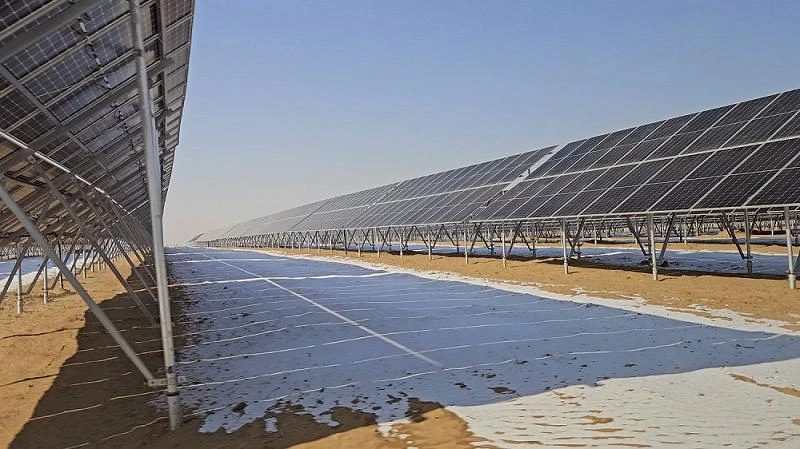Calculating Your Solar Panel Requirements for Optimal Energy Efficiency
Estimating Solar Panel Needs A Comprehensive Guide
As the world shifts towards renewable energy sources, solar power has become a popular choice for homeowners and businesses alike. One of the first steps to harnessing this clean energy is determining how many solar panels you’ll need to meet your energy demands. This article aims to guide you through the process of estimating your solar panel needs effectively.
Understanding Your Energy Consumption
The first step in estimating your solar panel requirements is to understand your current energy consumption. Reviewing your electricity bills over the past year can provide insight into your monthly usage in kilowatt-hours (kWh). Most utility bills will list your total energy consumption, which is an essential figure for calculating your solar needs.
For example, if your household consumes 900 kWh per month, your average daily consumption would be about 30 kWh. Knowing this number helps in determining how much energy you want your solar panel system to produce.
Assessing Solar Panel Output
Not all solar panels are created equal; the output of a solar panel depends on its wattage rating, which typically ranges between 250 to 400 watts. To estimate how much energy a single panel will produce, you must consider the average sunlight hours your location receives.
For instance, if you live in a sunny region that gets about 5 hours of effective sunlight per day, a 300-watt solar panel can generate approximately 1.5 kWh daily (300 watts x 5 hours = 1,500 watt-hours = 1.5 kWh). Over a month, this translates to around 45 kWh.
Calculating the Number of Panels Needed
To determine how many solar panels you need, divide your average daily energy consumption by the daily output of a single solar panel. Continuing with our earlier example, if your household consumes 30 kWh daily, and each panel generates 1.5 kWh, the formula looks like this
\[ \text{Number of panels} = \frac{\text{Daily energy consumption}}{\text{Daily output per panel}} \]
estimate solar panel needs

\[ \text{Number of panels} = \frac{30 \text{kWh}}{1.5 \text{kWh}} = 20 \text{ panels} \]
In this case, you would need approximately 20 solar panels to meet your daily energy requirements.
Accounting for Additional Factors
While the basic calculation provides a starting point, several factors can affect the final number of solar panels you'll need. Here are some considerations
1. System Losses Energy conversion and transmission can lead to losses. A common estimate for system losses is about 10-20%. It’s wise to oversize your system slightly to account for these inefficiencies.
2. Future Energy Needs Think about future energy consumption. If you plan to purchase electric vehicles, add more appliances, or even expand your family, consider estimating higher energy needs.
3. Orientation and Tilt The angle and direction of your solar panels can affect their efficiency and output. Ideally, panels facing south will capture the most sunlight, while shading from trees or buildings can reduce output.
4. Local Regulations and Incentives Check for local regulations regarding solar installations, as well as any incentives or rebates that could offset your overall costs. Some states offer financing options that allow you to install fewer panels while still meeting your energy needs.
Conclusion
Estimating your solar panel needs is a critical part of transitioning to solar energy. With an accurate understanding of your energy consumption, the output of solar panels, and the various factors influencing installation, you can make informed decisions for your energy future.
Transitioning to solar power not only contributes to a more sustainable environment but can also lead to significant savings on energy bills. Take the time to evaluate your specific needs and consult with local solar energy professionals who can help optimize your system for efficiency and cost-effectiveness. By being thorough in your assessment, you’ll ensure that your solar panel system meets your needs for years to come.
-
Unlocking Energy Freedom with the Off Grid Solar InverterNewsJun.06,2025
-
Unlock More Solar Power with a High-Efficiency Bifacial Solar PanelNewsJun.06,2025
-
Power Your Future with High-Efficiency Monocrystalline Solar PanelsNewsJun.06,2025
-
Next-Gen Solar Power Starts with Micro Solar InvertersNewsJun.06,2025
-
Harnessing Peak Efficiency with the On Grid Solar InverterNewsJun.06,2025
-
Discover Unmatched Efficiency with the Latest String Solar InverterNewsJun.06,2025







